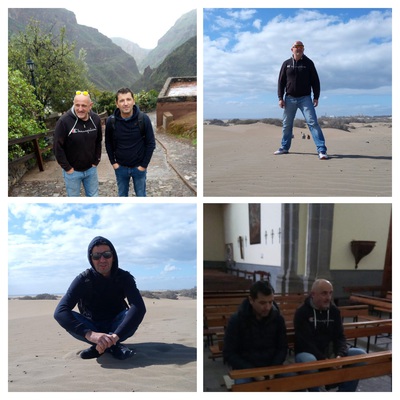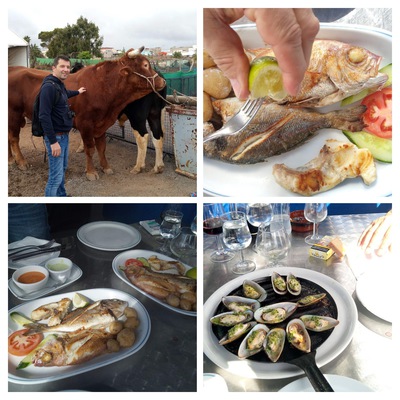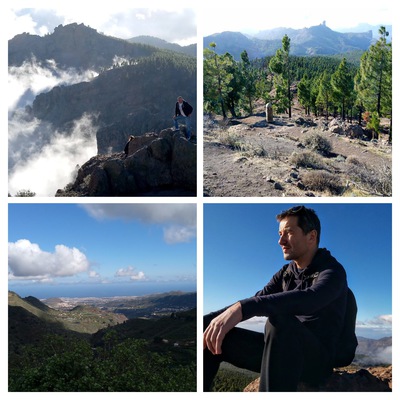Učitelji Mario Kanižaj i Siniša Trajbar su u studenom 2019 boravili na stručnom usavršavanju na španjolskom otoku Gran Canaria u školi CEIP Elvira Vaquero u Valsequillo. Tamo su proučavali nove metode poučavanja, španjolski školski sustav, razgledavali znamenitosti otoka.
Cilj je unijeti novitete i kreativnost u nastavu i inicirati naš Kurikulum. Svakog dana donose novi video ili fotografije na Facebook stranici Erasmus+ KA1 projekta Ready - Set - Step Up! https://m.facebook.com/story.php?story_fbid=126761458760658&id=110799047023566&sfnsn=mo&d=n&vh=e
Učitelji Siniša Trajbar i Mario Kanižaj objavili su svoj članak o mobilnosti na Gran Canaria u lokalnim novinama. Pročitajte ga ovdje:
https://emedjimurje.net.hr/vijesti/skolski-kutak/3616975/bogato-iskustvo-ucitelji-os-strahoninec-educirali-se-na-spanjolskom-otoku-gran-canaria/?fbclid=IwAR0hVCAVHyUhHeg3hLbaN1S7WyWjQtXCefapCxlUjBD9am_QmIt6EvYTkxI
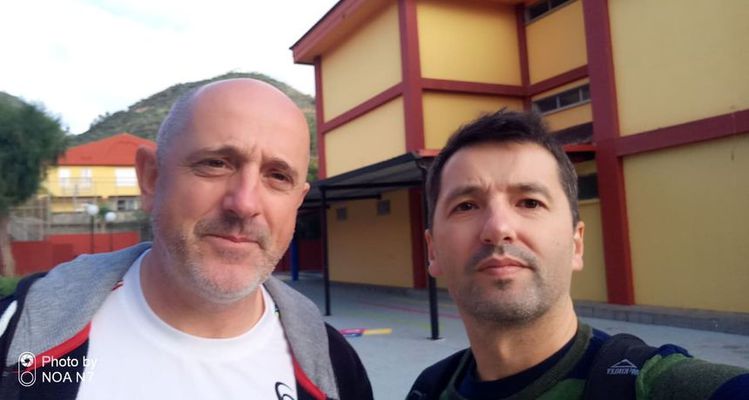
English translation of the article:
The job shadowing professional development involves first-hand learning in the class of an assigned mentor, a teacher of children in primary schools in the European Union.
From 18 to 22 November 2019, Siniša Trajbar (physical education teacher) and Mario Kanižaj (primary school teacher) within the Erasmus + KA1 project of the Elementary School Strahoninec were involved in "job shadowing" in Valsequillo (Gran Canaria).
- For international cooperation with existing partner schools from the KA2 project, we contacted a school in Spain, CEIP Valsequillo in the Canary Islands (from this year called CEIP Elvira Vaquero) who expressed a desire for this form of cooperation. The task of observing work and teaching is to gain a direct insight into the educational system of the partner school and to involve new teaching methods in one's own educational practice. The goals of this project are to raise the quality of the School with improved and new teaching methods, the use of ICT tools, innovation of the Curriculum and encouraging the creativity of teachers and students, we were told from the elementary school Strahoninec.
During the course, teachers followed the teaching of physical education and health, English language, music culture and subjects taught as part of classroom teaching. Although the compulsory education of children in the local schools begins at the age of six, children from the age of three to six go to a kindergarten for which they regularly use the name of the school. The daily rhythm in the kindergarten is similar to the school rhythm in order to adapt the children to the school way of working as soon as possible. Every day, physical education classes and English language classes are held in the kindergarten by primary school teachers in Vallseqill. Emphasis is placed on adapting to the school system, creating work habits and learning while playing.
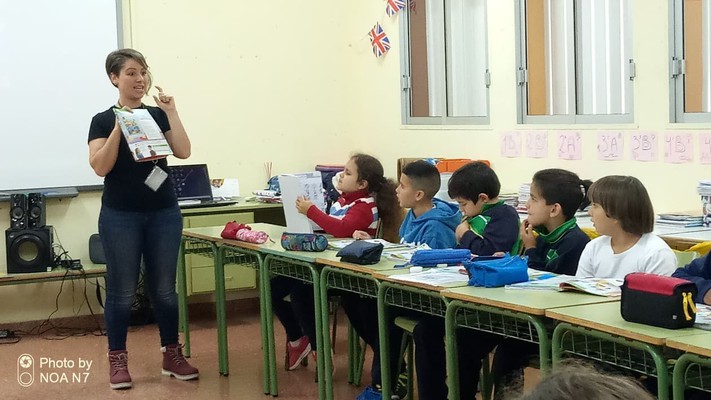
The school year in Spain begins in mid-September and ends in June. It is divided into three periods, each of which has 11 weeks. Although the periods are the same throughout the country, they vary depending on the region. Classes begin at 9:00 and end at 17:00. Classes are organized for 45 minutes each.
The primary school in Valseqillo is very well technically equipped and has a team of professional associates consisting of: pedagogues, psychologists, speech therapists, special educators. Teachers there often point out that their children are extremely temperamental, lively and loud, and increasingly resort to techniques that want to calm children, relax and better, at the beginning of the class to prepare for work and planned teaching activities. These techniques consist of breathing exercises, relaxation with simple calm, subtle motor movements, or listening to carefully selected music that has a calming effect on students. The methodology of individual subjects and the articulation of the lesson itself does not differ from the one that is established in our country and in most other European countries, but the school we visited puts special emphasis on the educational processes of child development. Great attention is paid to individual respect, humanism and tolerance in upbringing and education, which is achieved through empathy, respect for diversity and encouraging the development of personal and cultural identity of the child.
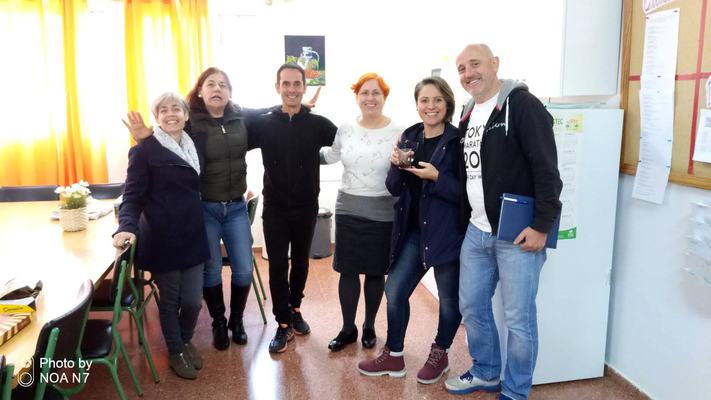
Native cultural communities also work closely with the school. Once a week, people from the cultural communities of their area come to the school and tell the children about the traditions, customs and culture of the homeland and its impact on the past, present and future.
During the course, teachers had the opportunity to get to know the traditional sports games, music and dances of the Spanish archipelago. Numerous interesting facts and peculiarities of the school system are also evidenced by video reports in which teachers reported daily to colleagues from the Strahoninec Elementary School.
Upon returning from the course, teachers will disseminate new knowledge and skills through a dissemination plan so that they can be applied in everyday work and integrated into the Annual Plan and Curriculum of their school.
Izvješće na sjednici Učiteljskog vijeća, 12.2.2020.
Photo Gallery
